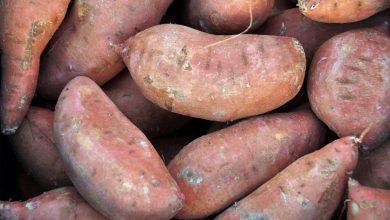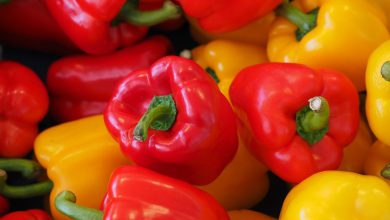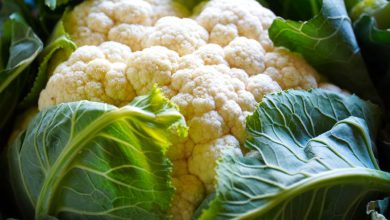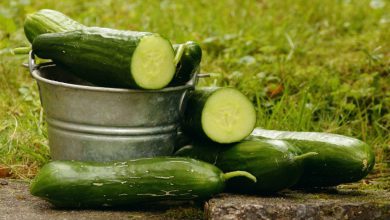Can Bearded Dragons Eat Asparagus?
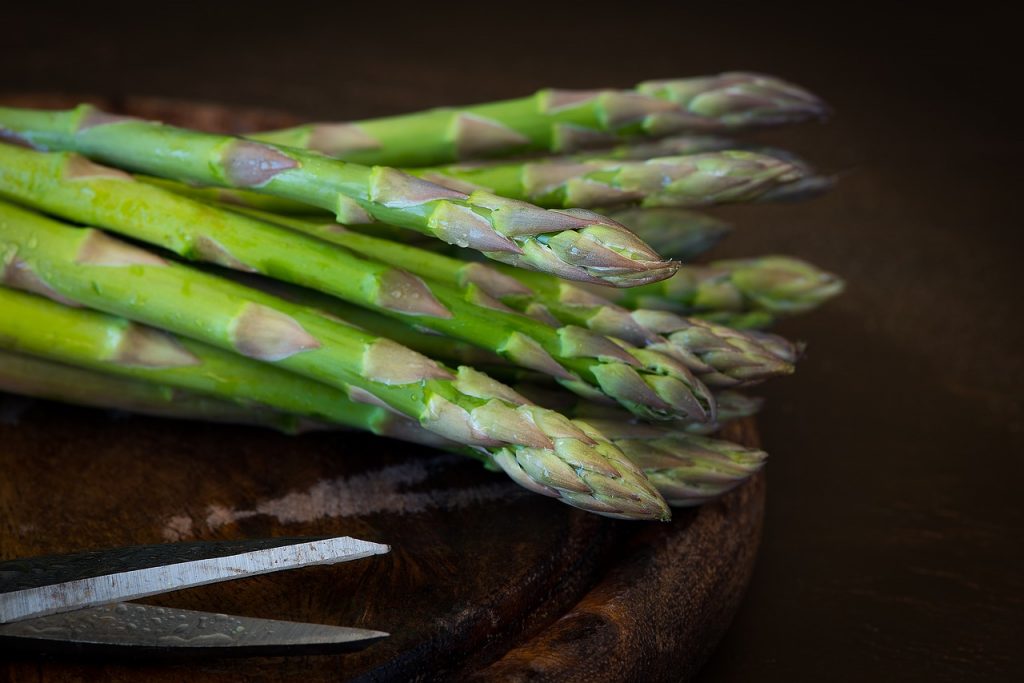
Asparagus might seem like an odd thing to feed to a bearded dragon. After all, it tends to be quite expensive. It’s also quite a seasonal vegetable, only being available for part of the year.
All the same, as I seem to keep getting questions about whether bearded dragons can eat asparagus, so I thought I’d answer the question here.
Bearded dragons can eat asparagus as part of a varied diet of vegetables and fruits.
Asparagus stems can be tough, however, and aren’t the most nutritionally-packed food around.
So before you go tossing some asparagus tips into your vivarium let’s look at a few more specifics…
Can Bearded Dragons Eat Asparagus Everyday?
Bearded dragons should not eat asparagus everyday.
While it certainly isn’t the worst food you can give your bearded dragon, it does have a distinct number of drawbacks.
Notably, asparagus spears gave quite a low calcium level, while also having a moderate amount of oxalic acid. We’ll cover both those topics in a little more detail later on in this article.
Of course, asparagus is a seasonal vegetable, typically only being available for part of the year. So even if you wanted to make it a staple part of your beardies diet (which we wouldn’t recommend) it would be very difficult with such a seasonal vegetable.
Even when in season, however, asparagus is best given to your bearded dragon in moderation.

How Often to Feed Asparagus To a Bearded Dragon
Asparagus is best fed to your bearded dragon as an occasional treat.
There are much more nutritionally-dense foods that should be fed in far higher volumes.
Asparagus can be given to your bearded dragon once or twice a week when it is in season.
The nutritional weaknesses of asparagus mean that a range of other foods should always be offered alongside. In doing so, you’ll minimize the risk of vitamin or mineral deficiencies.
Nutrients Found in Asparagus
So far the news on asparagus sounds reasonably bad. But don’t lose hope.
Asparagus can form a valuable part of your bearded dragon’s diet. You just need to be mindful to correct the inherent weaknesses.
However asparagus fed as part of a varied and balanced diet is perfectly acceptable. Indeed, asparagus spears do actually contain a surprising amount of beneficial nutrients.
Possibly the most notable thing about asparagus is how high it is in protein and fiber. Over a quarter of the calories found in asparagus are in the form of protein, so it can be particularly suitable for younger beardies who need extra protein to grow.
Another nutrient not found in many other foods, yet present in high volumes in asparagus, is selenium. Selenium has a host of roles in the body, but is probably best-known for supporting a healthy immune system and reproductive function.
Vitamins found in asparagus in good volumes include vitamins A, C, E and K, not to mention thiamin, riboflavin, niacin and folate.
The mineral content is equally impressive, boasting copper, magnesium, iron, potassium and zinc among others.
As you can see, the handful of weaknesses surrounding asparagus shouldn’t prevent you from giving it to your bearded dragon. Quite the opposite in fact – fed in moderation and as part of a varied diet asparagus can be a valuable addition to your beardie’s diet.
Calcium Levels in Asparagus
One of the weaknesses of asparagus from the perspective of bearded dragons is that it contains quite low levels of calcium.
An ideal calcium to phosphorus ratio in bearded dragons is 2:1. Sadly the ration in asparagus is more like 1:2.5. In other words it has far more phosphorus than calcium.
Fed excessively, and over an extended period of time, this can lead to calcium deficiencies. The end result may be weaker bones that fracture easily, or joint abnormalities.
Asparagus should therefore always be fed alongside high calcium foods to correct this weakness, or your bearded dragon should be regularly offered a reptile-safe calcium supplement.
Sale


Fluker’s Calcium Powder for Reptiles – Premium Reptile Calcium Powder with Added Vitamin D3, for Strong Healthy Bones and Vital Functions – Ideal for Lizards, Snakes, Turtles, Frogs – Made in USA – 4oz
- Premium Calcium Powder: Top-tier bearded dragon calcium powder, specially formulated for lizards, snakes, turtles and frogs. It ensures strong, healthy bones and vital bodily functions.
- Essential Reptile Accessories: Part of the essential reptile accessories needed for the optimal health of your reptile. It offers a proper balance of essential nutrients at any stage of life.
- Repti Calcium with added D3: Fluker’s is not just repti calcium, but a calcium supplement for reptiles with added Vitamin D3, perfect for indoor reptiles such as leopard gecko calcium requirements.
Oxalic Acid Levels in Asparagus
Oxalates can bind with calcium in the body, creating kidney stones. Foods with high levels of oxalic acid may also tie up calcium so that it cannot be effectively used in the body.
The oxalic acid level in asparagus is considered to be “moderate”. There are certainly far worse foods for oxalic acid, but of course there are also much better foods.
The moderate oxalic acid level is particularly worrying when you consider that asparagus is a low calcium food to start with.
This further underlines the importance of giving your bearded dragon asparagus only as an occasional treat. Furthermore, it is crucial to combine it with higher calcium foods to avoid the risk of deficiencies.
How to Prepare Asparagus For Bearded Dragons
Raw asparagus is tough and woody. It is not always easy for your bearded dragon to eat, and is at risk of causing blockages in the digestive tract.
Asparagus should always be cooked before feeding. Cooked asparagus is far more tender and therefore represents an easier food for your bearded dragon.
Preparation is reasonably simple. Start off by washing the asparagus spears thoroughly. Then chop off the tougher ends of the spears. Next they can be cooked.
Try to avoid cooking oils when preparing your bearded dragon’s food. Gently steaming or boiling the asparagus is normally the best solution.
Once cooked, and allowed to cool slightly, the asparagus can be given to your beardie. The spears may be fed whole, though it is normally advisable to finely chop the asparagus. Chopping the asparagus not only makes it easier for your bearded dragon to swallow, but also means it can be easily combined with other ingredients.
When combined in this way your bearded dragon will be less likely to selectively feed, choosing only their favorite ingredients. This is particularly important when feeding asparagus to your beardie because as we’ve seen it does have a number of nutritional weaknesses.
Variety is key when feeding asparagus to your bearded dragon.
